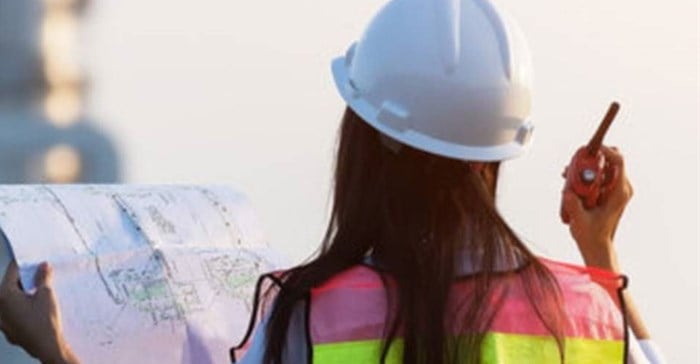
According to the report, in Africa and the Middle East, women make up just 9% of senior management positions in the energy sector, with gender diversity decreasing with seniority. Women make up less than 8% of technical jobs in the oil and gas sector, and just 9% of management positions in the utility sector.
One of the primary inhibitors to active female participation within the industry was identified as access to education, specifically in the fields of science, technology, engineering and math (Stem).
“Boston Consulting Group published a study on gender parity in the oil and gas industry that found that 54% of post secondary scholars are female, yet only 27% are in the Stem subjects. Why is this? One of the reasons put forth by the study is that traditional ideas about the oil and gas industry are quite macho-centric," said Oluseun Solanke, principal reservoir engineer, Oando Energy Resources, at the Women in Energy webinar hosted by by Africa Oil & Power and the African Energy Chamber.
In some cases, limited and unequal access to education has come as a relic of former government regimes that denied indigenous populations the opportunity to take ownership over natural resources and related employment.
“There is a social-political motivation behind it. For example, Namibia’s political history pre-independence was extremely difficult – the existing regime not only focused on racial segregation, but also the types of employment that were available to Namibians who were black. The apartheid government saw the education system as a major vehicle for the propagation of its beliefs, which created the first barrier for Namibians to participate in the economy’s priority sectors. The legacy of apartheid persisted for a very long time. Going forward, it starts with our people taking ownership of their natural resources," Selma Usiku, head exploration, Der Mond Oil & Gas.
Another solution to the discrepancy in education comes in the form of female and minority representation, coupled with active mentorship, for youth and students.
“Similar to issues with race, when people see people who are like them doing things, it can change their sense of their own capabilities. One of Oando’s initiatives is to open mentorship programme to schools, where we talk to young girls and offer one-on-one mentorship. We have to let them know that Stem is open to them,” added Solanke, noting that 47% of Oando’s workforce is female.
Mentorship, on-the-ground job training and early career exposure were all identified as key success factors to women harnessing employment opportunities within the industry.
“It was very interesting to me, early on in my career, to see all the functional departments supporting the operations of oil and gas – finance, human resources and so on, I had the opportunity to have strong mentors in each company that I went to. If you have the education, you need to practice it. If you have just the education, you won’t be able to see what’s on the ground because theory and practice are different," said Khadijah A Ba, executive chairman, Der Mond Oil & Gas.
For girls and women without access to mentorship or connections within the industry, the panel highlighted the importance of looking to other industries to help navigate gender and social bias.
“The mentorship that you get doesn’t necessarily have to be within the industry. Look for someone who has maintained integrity in their work, focused on their personal development and overcome challenges. You can take those principles with you," said Usiku.
The panel also addressed limited access to capital in driving the growth of female-driven, small and medium-sized enterprises both in and outside of the oil and gas industry. According to a survey conducted by AOP during the webinar, 85% of participants said that women do not have equal access to funding for small and mid-sized enterprises.
“The problem is that women are primarily in markets in which there is not a key influence – retail, informal businesses and the like. There are a lot of factors to this, including access to capital for women, especially in Africa. But if we can open up this market to them, the impact will be huge. Women are half of the population in Africa – you don’t want to leave them behind because that’s a fair amount of contribution to the economy. We must take into account social empowerment." said Mirelle Toulekima, managing director, MT Energy Resources.

APO is the sole press release wire in Africa, and the global leader in media relations related to Africa. With headquarters in Dakar, Senegal, APO owns a media database of over 150,000 contacts and the main Africa-related news online community.
Go to: www.bizcommunity.com/PressOffice.aspx?cn=apogroup